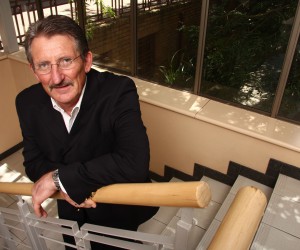Strategies to resolve South Africa’s mining milieu will need to include drastic moves towards a settled labour force and a pro-active dismantling of the migrant labour system.
“The effects of migrant labour are eroding the ability of mines to forge sustainable, skilled and contented communities around their operations,” said Roger Dixon, chairman of consulting engineering firm SRK Consulting SA.
Dixon said much of the current labour unrest in the industry can be owed to inappropriate labour decisions taken by mines over recent years, and lack of government service provision in mine communities.
He said it has become increasingly clear that mines’ policy of offering workers a living-out allowance for accommodating themselves has had unforeseen negative impacts, and has often exacerbated social problems in areas around mines.
“The migrant labour system has endured, placing severe financial stresses on mineworkers who still try to support a life at the mine and a life back in their home village,” he said. “The social and economic problems that this situation fosters have been key to recent unrest, and need to be tackled directly.”
He questions the viability of suggestions from the Presidency’s mining consultative forum that mining rosters be adjusted to allow workers more home visits each year.
“It is mooted that a system of eight weeks on and two weeks off might be helpful, but this is likely to create more problems than it solves,” said Dixon. “We should really be creating the conditions to allow the workforce to settle in and around the mine environment on a permanent basis, and to focus their lives and future there.”
This was effectively done in the development of gold mining towns like Welkom, albeit in a racially discriminatory fashion; new strategies should explore the efficacy of this under today’s conditions of equality and constitutionality. He said the predominance of the migrant system in mining no longer makes ethical or business sense in a democratic SA.
“Even the current use of terms like ‘labour-forwarding areas’ – to denote where mineworkers come from – seem to imply that mineworkers are just units of production to be ‘sourced’ from the rural areas,” he said.
While Australia’s mining sector uses the ‘fly-in fly-out’ system to hold down accommodation costs on its remote mines, the negative social and family impacts of this system are well documented. Dixon said SA would be wise to avoid following this example, as the social effects of fatherless families and disrupted communities are already deeply felt here.
“Clearly the problem is complex, and the profitability and life-span of many mines rules out some of the better options for mineworkers’ accommodation,” he said. “But the solution needs to involve all stakeholders, including local government, making their contribution toward a long-term strategy for permanent urban settlements with secondary industries.”
Diversifying of local economies needed to be promoted, so that communities were not over-reliant on the mine itself and could outlive the mines they initially serviced. This aim, said Dixon, was already an important element of the Minerals Resources Development Act and was vital in leveraging SA’s future economy on its current mining activities.
He said that tinkering with mine rosters to make home-trips more frequent would further reduce mine productivity – a factor already under pressure due to longer distances from surface to the stopes as gold and platinum mines deepen.
“The sheer logistics of transporting thousands of workers long distances more often would also be fraught with risks related to road safety, staff co-ordination and operational efficiencies,” he said.






